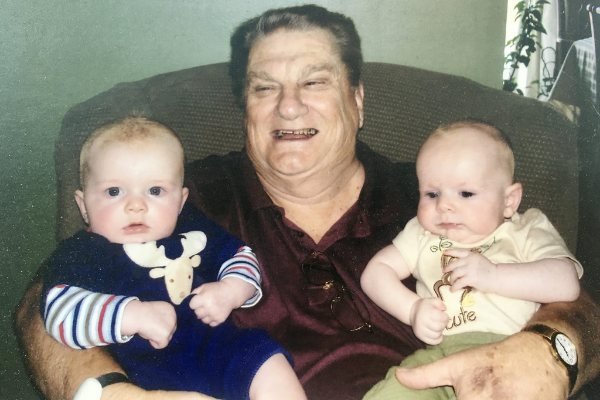After my mother died a few years ago, my father’s health quickly declined. As a firefighter, he had dedicated his life to the safety of our community. But with no family close by, he had become isolated and vulnerable.
On one of my routine trips home, I pulled into my dad’s driveway to an astonishing sight: dozens of his neighbours had turned up to rake his lawn. They once depended on him, and now he could rely on them.
I’m reminded of my father now, in the age of COVID-19. It is teaching us that we are mutually dependent. When we see overcrowded shelters struggling to abide by physical distancing rules, we understand the risks to public health. When we see rapid unemployment and shuttering of businesses, we know that our entire economy is at stake. And as we watch as global food systems are disrupted, prices steadily rise, and lineups for food get longer, we know that we are all in jeopardy. This crisis shows us that our individual wellbeing is tied to our collective welfare.
And yet, over the last 30 years, a growing number of Canadians have been forced to live increasingly precarious lives. Nowhere in the country is this more apparent than in Toronto. In fact, as cited in the latest Toronto’s Vital Signs report, Toronto has the most income inequality in Canada.
Still, I am inspired daily by the kindness, creativity and determination of local charities. Since the onset of social distancing, Toronto Foundation has been hosting regular virtual gatherings, through the Better Toronto Coalition, to unite our philanthropic community with organizations working at the frontlines of the pandemic.
So far we’ve learned about growing food insecurity. The Daily Bread Food Bank has experienced a 30 per cent decrease in their distribution networks, while the demand for their services has tripled. They have formed creative new partnerships with libraries and businesses to get food to the 15,000 families that depend on them. Black Creek Community Farm has long been concerned about high food insecurity in the Jane and Finch community. After starting an emergency food box program with FoodShare Toronto, requests for boxes grew from 200 to 1,700 overnight. Their team of six staff has been working around the clock to ensure all families are fed.
We’ve also learned how Indigenous organizations have mobilized. In Toronto, 90% of the 70,000 Indigenous residents live at or below the poverty line. Elders, single-parent low-income families, and people who are homeless or precariously housed are especially susceptible. Though the current crisis stands to heighten these challenges, Indigenous organizations have drawn on their long history of adaptability. Toronto Council Fire Native Cultural Centre has been feeding hundreds of people daily and delivering food to seniors. Native Child and Family Services of Toronto has extended their reach across the city to support the highly spread-out Indigenous population.
And, we’ve come to understand the growing crisis of violence against women, which UN Women has dubbed “the shadow pandemic.” The Barbra Schlifer Commemorative Clinic is fielding a surge of calls from women experiencing violence. But after moving all 25 of their staff online within two days, they were able to increase their efficiency to coordinate supportive services. A few weeks ago, Native Women’s Resource Centre of Toronto held their first-ever virtual full moon ceremony for their highly isolated clients.
I am also buoyed by the generosity of our philanthropic community, who are investing their time and money to support communities across Canada. The impacts of COVID-19 are not shared equally among us, but we can come together in solidarity to address them. In fact, together with individual and corporate philanthropists, the Better Toronto Coalition Fund has now made over 120 unrestricted grants to frontline organizations serving vulnerable populations across the city.
But charitable giving can only do so much. This experience demands we confront the flawed assumptions that shape our culture and put us all at risk. We must ask ourselves: how do we shift from a culture of individualism to a new system that recognizes our connections to each other and the environment? How can we transform our relationship with money to close the vast income and wealth gaps that have created staggering inequality? How do we walk away from this with something better for all?
I believe it starts with reciprocity. COVID-19 shows us that we are all connected and interdependent. I have come to understand that this is, in part, what Indigenous leaders mean when they say “all my relations.” We have a responsibility to take care of each other, not just out of the goodness of our hearts or our sense of duty, but for our very survival.
Follow Sharon on Twitter @s2avery.



